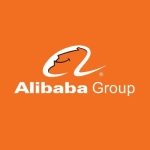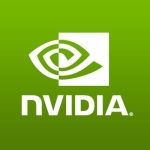What is our primary use case?
Amazon Bedrock is used as a bridge between an application and a foundational Gen AI model. It enables me to use publicly available models from companies like Anthropic or Meta through Amazon or AWS. These models are hosted or borrowed by Amazon through APIs, providing a centralized place to utilize different foundational models.
Bedrock allows comparison of these models for assessing performance and effectiveness for specific use cases. In my projects, Bedrock is used in multiple stages, including data pipeline processes like data cleaning or formatting, sentiment analysis, and creating chatbots for end users. The main strength of Gen AI, which Bedrock leverages, is reasoning, significantly aiding data pipelines.
How has it helped my organization?
Bedrock plays a vital role in building a strong foundation for data pipelines by adding reasoning capabilities, often missing from backend workflows. It offers productivity enhancements by providing a playground to compare models and experiment with Gen AI applications. It also aids in clean data preparation and sentiment analysis, leading to better internal workings of applications.
What is most valuable?
First, Bedrock offers various foundational models in one place. Second, it provides customization options for these models through techniques like fine-tuning, retrieval augmented generation, and continual pre-training, which are innovative features not seen in other managed platforms. Experimentation with Gen AI using Bedrock is notably user-friendly.
What needs improvement?
I would appreciate a greater focus on agentic Gen AI applications in Bedrock. While Bedrock includes agents in its toolkit, the feature lacks complexity compared to open-source frameworks.
Additionally, the user interface for the playground could be more refined. While Bedrock is powerful, it lacks markdown formatting features seen in interfaces like ChatGPT.
For how long have I used the solution?
I have been using the Bedrock solution for approximately six months.
What do I think about the stability of the solution?
Bedrock manages scalability and reliability effectively as a serverless solution, ensuring AWS handles scalability and security.
What do I think about the scalability of the solution?
Bedrock automatically scales, with AWS handling scalability concerns. Users are responsible for data security at the application level, but AWS provides features to support this.
How are customer service and support?
The AWS technical support was quick to respond, even under a basic support plan, and deserves an eight rating.
How would you rate customer service and support?
Which solution did I use previously and why did I switch?
I have worked with LangChain and its agentic framework, LandGraph. However, these do not provide managed services like Bedrock.
How was the initial setup?
Initially, navigating the AWS console for Bedrock was somewhat confusing with multiple clicks needed to reach the required features. However, after regular use, it has become part of my routine and is no longer an issue.
What was our ROI?
Bedrock offers a very high return on investment due to its cost-efficiency. It uses a pay-for-what-you-use model, allowing experimentation with foundation models at a low cost.
What's my experience with pricing, setup cost, and licensing?
Using Bedrock is inexpensive for experimenting with foundation models compared to managed services from other companies hosting these models.
Which other solutions did I evaluate?
LangChain and LandGraph, although not providing managed services like Bedrock.
What other advice do I have?
I recommend Bedrock to anyone entering the Gen AI field or considering experimenting with Gen AI. Its cost-effectiveness makes it ideal for experimentation.
I'd rate the solution nine out of ten.
Which deployment model are you using for this solution?
Public Cloud
If public cloud, private cloud, or hybrid cloud, which cloud provider do you use?
Amazon Web Services (AWS)
Disclosure: My company has a business relationship with this vendor other than being a customer. Partner













